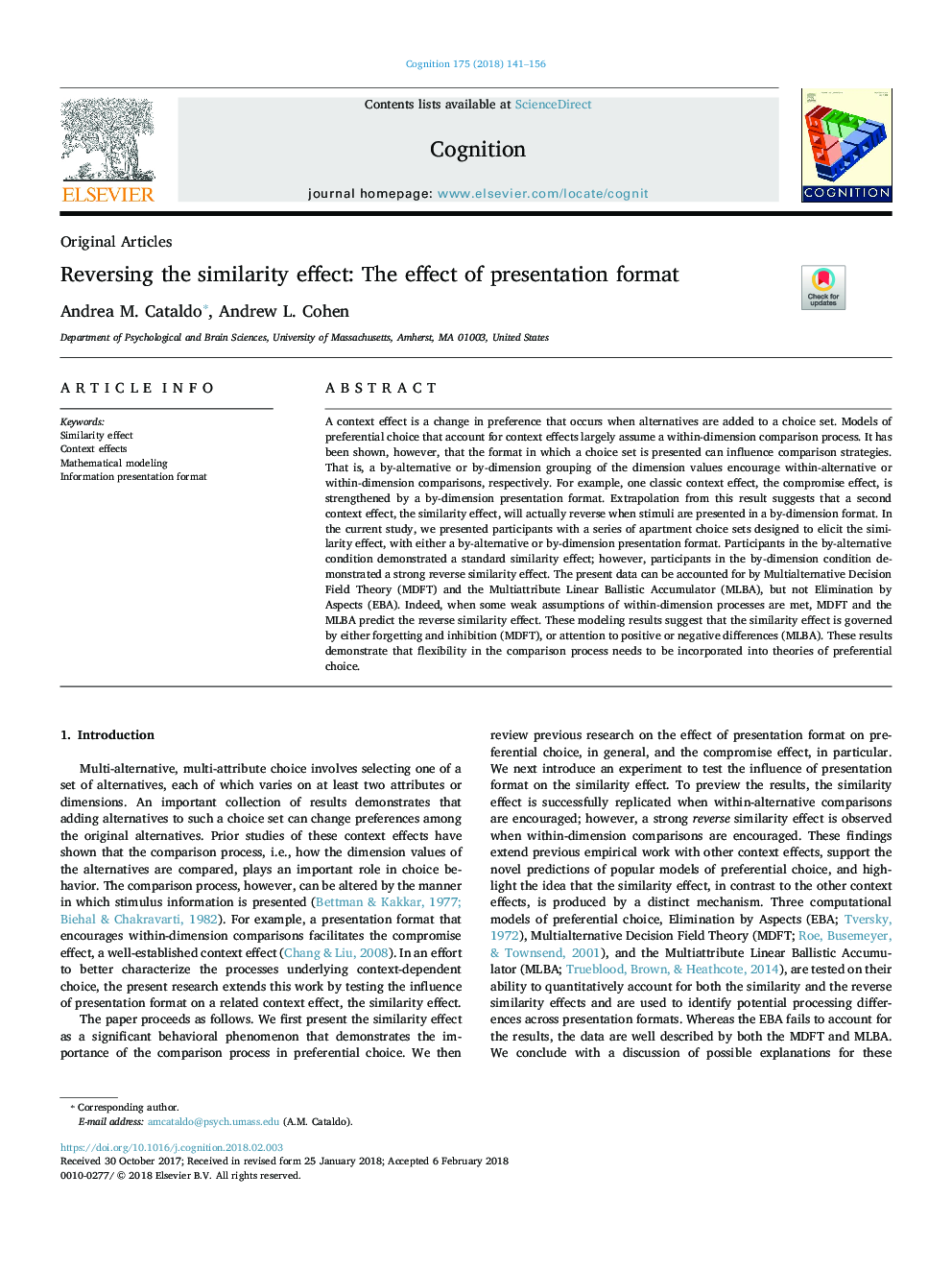| کد مقاله | کد نشریه | سال انتشار | مقاله انگلیسی | نسخه تمام متن |
|---|---|---|---|---|
| 7285375 | 1474092 | 2018 | 16 صفحه PDF | دانلود رایگان |
عنوان انگلیسی مقاله ISI
Reversing the similarity effect: The effect of presentation format
ترجمه فارسی عنوان
معکوس کردن اثر شباهت: اثر قالب ارائه
دانلود مقاله + سفارش ترجمه
دانلود مقاله ISI انگلیسی
رایگان برای ایرانیان
کلمات کلیدی
اثر مشابهی، اثرات زمینه، مدل سازی ریاضی، قالب ارائه اطلاعات،
موضوعات مرتبط
علوم زیستی و بیوفناوری
علم عصب شناسی
علوم اعصاب شناختی
چکیده انگلیسی
A context effect is a change in preference that occurs when alternatives are added to a choice set. Models of preferential choice that account for context effects largely assume a within-dimension comparison process. It has been shown, however, that the format in which a choice set is presented can influence comparison strategies. That is, a by-alternative or by-dimension grouping of the dimension values encourage within-alternative or within-dimension comparisons, respectively. For example, one classic context effect, the compromise effect, is strengthened by a by-dimension presentation format. Extrapolation from this result suggests that a second context effect, the similarity effect, will actually reverse when stimuli are presented in a by-dimension format. In the current study, we presented participants with a series of apartment choice sets designed to elicit the similarity effect, with either a by-alternative or by-dimension presentation format. Participants in the by-alternative condition demonstrated a standard similarity effect; however, participants in the by-dimension condition demonstrated a strong reverse similarity effect. The present data can be accounted for by Multialternative Decision Field Theory (MDFT) and the Multiattribute Linear Ballistic Accumulator (MLBA), but not Elimination by Aspects (EBA). Indeed, when some weak assumptions of within-dimension processes are met, MDFT and the MLBA predict the reverse similarity effect. These modeling results suggest that the similarity effect is governed by either forgetting and inhibition (MDFT), or attention to positive or negative differences (MLBA). These results demonstrate that flexibility in the comparison process needs to be incorporated into theories of preferential choice.
ناشر
Database: Elsevier - ScienceDirect (ساینس دایرکت)
Journal: Cognition - Volume 175, June 2018, Pages 141-156
Journal: Cognition - Volume 175, June 2018, Pages 141-156
نویسندگان
Andrea M. Cataldo, Andrew L. Cohen,
